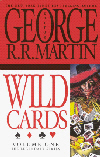Review by Booklist Review
Moral possibility, and the unexpected or ironic circumstances in which it reveals itself, animate this posthumous collection of short works by the prolific L'Heureux (The Medici Boy, 2013). Some epiphanies are prompted by violence. In The Handmaid, a young woman slain by right-wing paramilitary forces somewhere in Latin America promises justice if she can transcend her own death. The narrator of The Torturer's Assistant swells with empathy for his victims, even as he dutifully enables the violation of their bodies. But moments of realization and redemption also present themselves in more mundane circumstances, including house sitting in London and marital infidelity in an English department. These are stories firmly rooted in the postwar twentieth century, both in their suburban settings and their distinctive moral idealism. Catholicism and clergy figure prominently; the author was a Jesuit priest for many years before he became the director of the creative-writing program at Stanford University. But the aches and ecstasies that permeate L'Heureaux's prose may not only be expressions of religiosity but rather the symptoms of an insatiable longing for integrity and wisdom, wherever they may be found.--Brendan Driscoll Copyright 2019 Booklist
From Booklist, Copyright (c) American Library Association. Used with permission.
Review by Kirkus Book Review
A sweeping posthumous collection wrestles with faith, irony, and the redemptive nature of love.In this compilation of new and previously published stories, L'Heureux (The Medici Boy, 2014, etc.) explores the beauty, pain, and grotesque humor of life in the world of an "ironic God." In "Witness," a statistician, professionally trained to measure the relationship between the hypothetical and the real, struggles to rationalize her terrifying new affliction: stigmata, which have appeared on her wrists. In "The Anatomy of Desire," a soldier, skinned alive during a war and finding himself "desperate to possess and be possessed" by another human being, cuts the skin off his lover and wears it as his own only to realize, terribly, after the act is consummated, that "there can be no possession, there is only desire." In "Communion," which takes place during the years of the Vatican II Council, a change-minded young Jesuit finds himself assigned to a stodgy conservative parish where, to his surprise, he is forced to reckon with his deepest loyalties. The sheer creative range of this collection is impressive. It's no surprise that L'Heureux, who was himself a Jesuit priest for 17 years, can render so convincingly the moral and emotional quandaries faced by aspiring priests, drunken priests, idealistic priests, adulterous priests, doubting priests, dead priests, priests who (like L'Heureux) would be poets, and priests who (also like L'Heureux) are abandoning or have abandoned the priesthoodbut what's wonderful is that he doesn't stop there: In his relentless drive to capture the ironies and follies and tragedies of life, L'Heureux gives us abused housewives, bullied children, spoiled children, a ritualistically dancing pope, and dozens of characters who, contorted by their feelings or by the world, stumbleaccidentally, briefly, and sometimes unconsciouslyinto versions (or inversions) of epiphany. It is typical of L'Heureux's dark wit that his single most enlightened character may be the eponymous narrator of "The Torturer's Assistant." "The work [of torture] is bad," the assistant admits, "but I do what I can. I give comfort, I give love," and then at night ("even torturers' assistants have a life outside the workplace"), he tucks his kids into bed: "I touch their small bodies gently, gently, because I know what can be done to them. No, mine is not a life I would have chosen in every respect, but whose is?" Moral tales full of love and irony written by a master. Copyright Kirkus Reviews, used with permission.
Copyright (c) Kirkus Reviews, used with permission.


